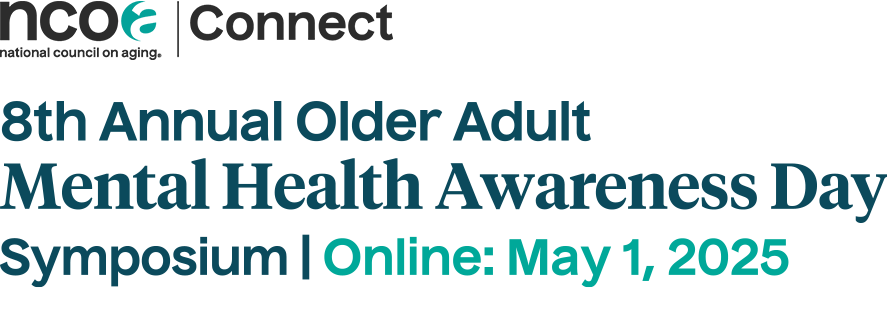
Closing Session and Remarks
3:30 to 4:30 PM ET: The Epidemic of Loneliness and Isolation: How Wisconsin is mitigating the effects through Social Connection.
Changes in health, losses, sensory changes, memory loss, and disability can increase the risk of loneliness and isolation. Learn how the Wisconsin Institute for Health Aging (WIHA) and the WI Coalition for Social Connection are reducing isolation and loneliness. Leave with tangible strategies to improve social connection among older adults.
Learning Objectives:
- Explain the purpose of the Coalition and its impact.
- Examine risk factors that can increase social isolation and loneliness.
- Identify strategies to increase social connections among older adults.
4:30 to 4:50 PM ET: Mindfulness: Practical Strategies to Support Self-Care
Dr. Lenee Cook-Braxton, PsyD, M.S., RYT will guide participants through encouraging conversations and journaling exercises to promote individual and group self-care practices. The experience will end with a brief meditation to foster community, growth, and self-awareness.
Learning Objectives:
- Describe how self-care strategies can have a positive impact on both physical and mental health.
- Apply strategies to promote individual and group self-care practice.
- Identify positive outcomes of meditation practice.
4:30 to 5:00 PM ET: Closing Remarks
Eligible for 1.5 CEU with live participation
Suzanne Morley, CHES
Health Promotion Program Coordinator
Wisconsin Institute for Healthy Aging
Suzanne Morley graduated from the University of Wisconsin- Stevens Point with a degree in Health Promotion/Wellness and a desire to work in community health and prevention. Before joining the WIHA team, she worked in suicide prevention and as a community health specialist with a rural health department. In her free time, she loves to stay active, be outside and spend time with her son and husband.
Tim Miller
Group member
Men's Shed
Tim Miller is a newer resident to the Juneau County Community. Since being associated with the Juneau County Men's Shed, he has met a variety of people and representatives from local organizations and businesses. Because of the connections fostered at the Men's Shed he had volunteered with local businesses and become a member of additional organizations as well as has met many new people in the community.
Harlan Wiebesiek
Group Member
Men's Shed
Harlan got involved with the Men's Shed after being connected to the ADRC for caregiving purposes for his wife who has Alzheimer's Disease. He and his wife had recently moved to Wisconsin from South Dakota, and he was needing more help caring for his wife. The Men's Shed has connected Harlan to other caregivers in the community, support groups and also the Outdoors Forever Club. Per Harlan "I've met a lot of good people through the Men's Shed and have been able to start a new life here in Wisconsin."
Dave Laridaen
Group Member
Men's Shed
Dave started attending the Juneau County Men's Shed right from the start in August 2022. Dave states, "there are so few social events in our area, especially for us old guys. Men's Shed fills the gap, helping our age group make connections. I've reconnected with men I haven't seen for years and met gentlemen who just recently moved here. For so many, it helps ease the loneliness that too often comes in the "golden years."
Katie Clark (Moderator)
Health Policy Analyst
Administration for Community Living (ACL)
Lenee Cook-Braxton
Group Health and Wellness Facilitator
Dr. Leneé is an Exercise Physiologist, Sport & Performance Psychology Practitioner, 200-hour RYT Certified Yoga Teacher, a NASM® Certified Performance Enhancement Specialist, a comprehensively trained and certified Pilates Instructor, Exhale® Certified Barre Instructor, and a Spinning® Certified Instructor. Her formal education includes graduate degrees in Exercise Science, Mind-Body Medicine, and Psychology.

